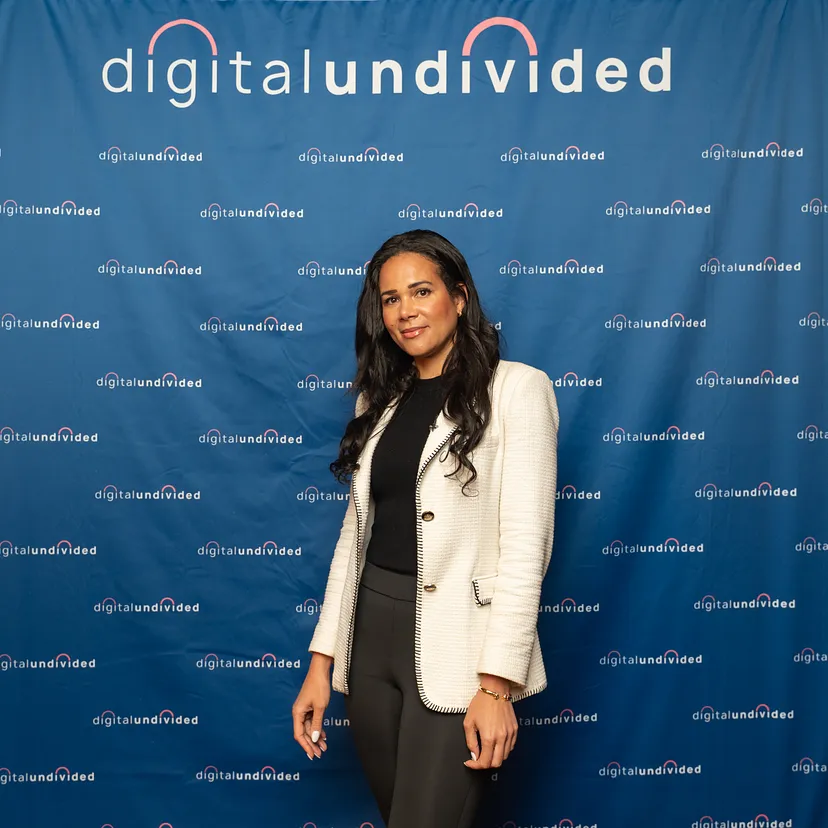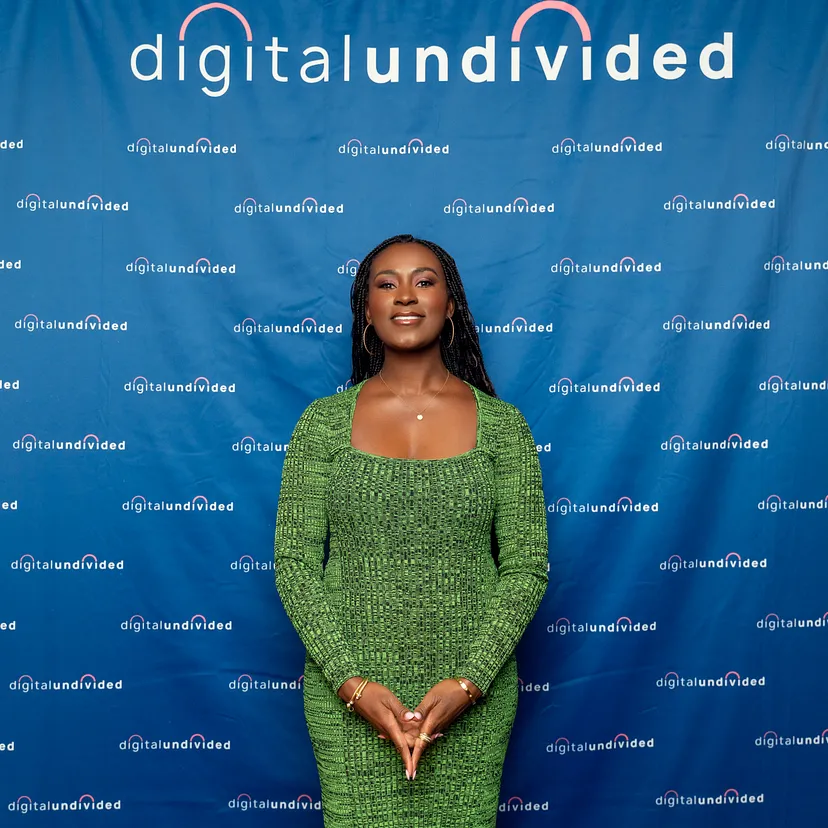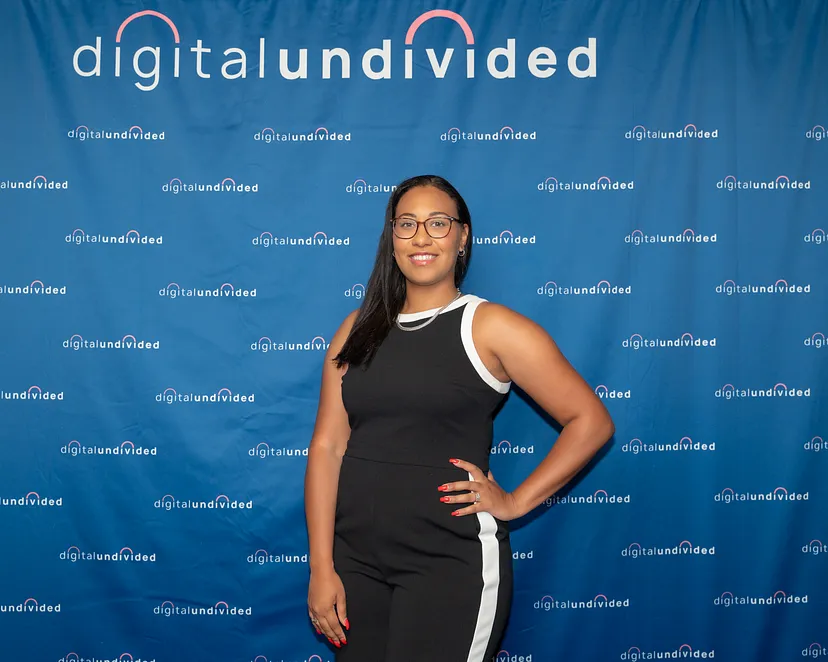
Image via digitalundivided
In 2016, digitalundivided’s Project Diane Report was the first research study to report alarming funding negligence and shed light on Latina and Black women founders’ challenges in the startup space. The findings from this inaugural report — now published every two years with updated statistics — sparked a national dialogue about inclusive innovation.
The release of the updated 2022 Project Diane Report revealed the 1% funding threshold for Latina and Black women founders had finally been crossed. With this news, critical players within the digitalundivided ecosystem — founders and investors alike — held a series of dinners to continue the discussion of the current state of Latina and Black women entrepreneurs in the startup ecosystem.
The concurrent digital experience from that night is known as digitalundivided’s Diane Dinners series. Diane Dinners is a digital series featuring conversations between investors and founders over the state of Latina and Black women founders in the startup industry, with a particular focus on fundraising. The series has three videos, all of which you can find on the digitalundivided website. As digitalundivided’s interim CEO Brittany S. Hale explains through this dinner series, “We aim to elevate these issues to promote understanding and focus our collective efforts on scalable solutions.”
This especially important series of discussions focuses on the impact of recent tech layoffs on the startup space, how interest rates impact investments, and the role of emerging markets in helping make — or break — Latina and Black women-owned startups.
Read on to discover the compelling insights from the first-ever digitalundivided Diane Dinners series. Get inspired and shed insight for Latina and Black women entrepreneurs looking to raise and grow their businesses during this tepid economic climate — no matter the odds.

Image via digitalundivided of Erica Duignan Minnihan, General Partner at Reign Ventures
What’s happening with the economy, and how does it impact investments?
According to Erica Duignan Minnihan, General Partner at Reign Ventures, the last few years of venture-backed startups have been incredibly constrained.
“With rising interest rates, acid allocations are pulling back their allocation to venture…we’ve seen the size of the market contract substantially.”
Consequently, Minniham explains that venture capitalists’ concern is ensuring their current investments survive this economic downturn. In other words, they want to ensure their existing portfolio companies can survive and are not interested in new investments where returns won’t be seen for years.
“Interest rates are important for startup founders. When interest rates go up, future cash flows’ present value diminishes. As a startup founder, you’re selling cash flows that may not come for another 5–7 years, if ever. Your evaluation can go down substantially, where in an environment when a risk-free rate goes from zero to five,” said Minniham.
That being said, she encourages women of color entrepreneurs to utilize this moment in time to their benefit:
“Great companies are founded in all economic environments, right? But I think as a founder, you have to realize that the sentiment on the street is you need to be able to do more with less…As female founders and founders of color, we’ve always had to do more with less. This might be an opportunity for us to have a competitive advantage over the other folks who are more resistant and not used to doing that.”

Image via digitalundivided of Natasha Bansgopaul, the CEO and founder of VegaX Holdings
With all this economic tepidness, how should Latina and Black women entrepreneurs think about building their companies?
“Knowing you are going to get nos. As female and Black female entrepreneurs, we’ve probably been at the top of the ranks for many things throughout our lives. So when you get that no, it almost feels disheartening. It almost feels like a personal attack, to a degree,” says digitalundivided x Cosmopolitan The New C-Suite honoree Natasha Bansgopaul, the CEO and founder of cryptocurrency company VegaX Holdings. She explains that thinking outside of the box is critical in general — but especially during this tepid economic investment climate.
“The hope is that your metrics and numbers speak for themselves. The reality is that it doesn’t,” she said. This is why a lot of the work needs to be done with relationship building, communities, and networks that folks can tap into because it’s a lot easier to have these conversations with people who are already head nodding, ‘Yes, I get it.’ It’s much harder to educate everyone on the gospel of why it isn’t easy — and all these other things — and then ask for money. We have a lot of steps to this ladder we are constantly climbing up. But I’d like to say we don’t get tired of climbing because we have to keep climbing. There is no (other) choice.”
Bansgopual also wants entrepreneurs to remember that when times get tough, remember why they started. “When you continue to get no’s and begin to wonder why you chose this field of business or made this decision…much of it rests in the passion and why you were building.” Remembering this passion, she says, is what will bring you back to the motivation and drive to keep going.

What tips or insights can you share with founders regarding succeeding at the pitching process itself?
Charlotte Newman, Global Head of Underrepresented Founders at Amazon Web Services, wants founders to know the insights that can keep them tenaciously in the game — and enhance their odds — during the pitching process.
The framework of Newman’s approach — a technique taught through Amazon Web Services for their underrepresented founder’s cohorts — is called “Pitching Better,” which helps founders circumnavigate risk-based questions from investors.
“We teach founders to respond factually but to (also) promote themselves. What often is missing for Black and Latina women is that it might not come as naturally to enter the room and have that kind of bravado (and say), ‘You might be missing out if you’re not investing in this opportunity.’”
Newman advises founders to look for opportunities to create those moments of FOMO for investors. “If you can create promotional opportunities out of moments of more risk in a pitch, that leads to better fundraising outcomes.

Image via digitalundivided of Shannon Morales, the founder and CEO of Tribaja
How should founders approach building relationships with investors?
“Most founders who have raised will tell you to cast a wide net — that you should reach out to a lot of investors,” says Shannon Morales, the founder and CEO of Tribaja, an AI-powered talent marketplace and community that supports underrepresented tech talent. Morales is also a digitalundivided BREAKTHROUGH alumnus. “For me, my experience was a little different. I wanted to be intentional about who I selected to have conversations with. I run a business. I have three kids. My time is limited, just like inventors’ time is also limited. So, I wanted to be selective and intentional about the investors I wanted to have those conversations with and which ones would understand what we were trying to build with Trabaja.
Take your time and select those investors you want to build those relationships with. Additionally, they say seven years is when you have that relationship with that investor. Take your time. Vet investors out the same way they will vet you out as a founder.
Lastly, Morales cautions if you do need that infusion of cash flow in general, find other ways to build that runway out, “There are alternative routes.”
Are you interested in learning more insider tips or gaining wisdom from the field of these incredible investors and entrepreneurs? Watch the full Diane Dinners video series here.
[Editors note]: This interview has been lightly edited from its original transcription.

